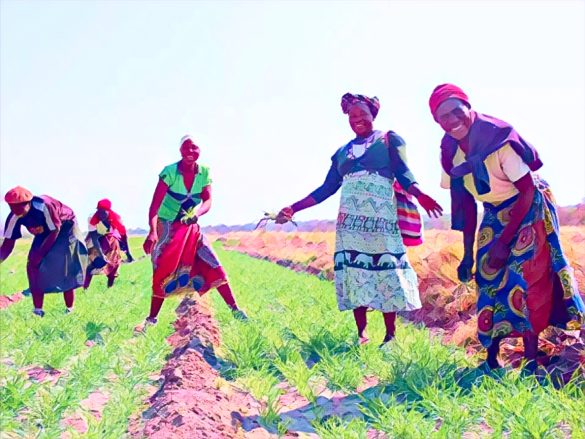KEY POINTS
- Japan commits $5.1 million to support Zimbabwe’s smallholder farmers through climate-resilient agriculture and sesame value chain development.
- Sesame farming centerpiece aims to boost exports, sustainable income, and market-oriented agriculture for Zimbabwean farmers.
- Initiative enhances agricultural infrastructure, resilience, and food security amid climate challenges like El Niño-induced droughts.
Japan has committed $5.1 million to a United Nations World Food Programme (WFP) initiative aimed at boosting climate resilience and sustainable agriculture for 37,000 smallholder farmers in Zimbabwe.
The three-year project will address food insecurity caused by climate challenges while fostering market-oriented agriculture.
Focus on sesame farming and resilience
The initiative will establish water-based infrastructure, enhance agricultural extension services, and develop value chains, with sesame production as a centerpiece.
Known for its high market potential, sesame is expected to provide a sustainable income for farmers and enhance export opportunities.
“This project enables smallholder farmers to grow sesame seeds and engage in market-oriented agriculture,” Japanese Ambassador Shinichi Yamanaka said.
He added that Japan would provide $72,000 for storage facilities in Mwenezi District to support sesame farming and value addition, implemented by Sustainable Agriculture Technology (SAT).
The involvement of Japanese trading firm ITOCHU Corporation is expected to strengthen the sesame value chain, connecting local farmers to global markets.
Addressing food insecurity amid climate challenges
Zimbabwe faces persistent food insecurity exacerbated by El Niño-induced droughts. By combining immediate food assistance with long-term climate-adaptive practices, the project aims to reduce vulnerability while building agricultural resilience.
“This contribution allows us to make food more accessible for Zimbabwean families,” said Barbara Clemens, WFP’s country representative.
“By supporting farmers to grow food sustainably and connecting them to markets, we empower communities to secure a better future.”
Long-term partnership
Japan has been a consistent supporter of WFP’s efforts in Zimbabwe, contributing more than $28 million since 2019 to food assistance and resilience-building initiatives.
This latest funding underscores Japan’s commitment to helping Zimbabwe address its climate challenges while advancing sustainable agriculture and economic opportunities for smallholder farmers.


